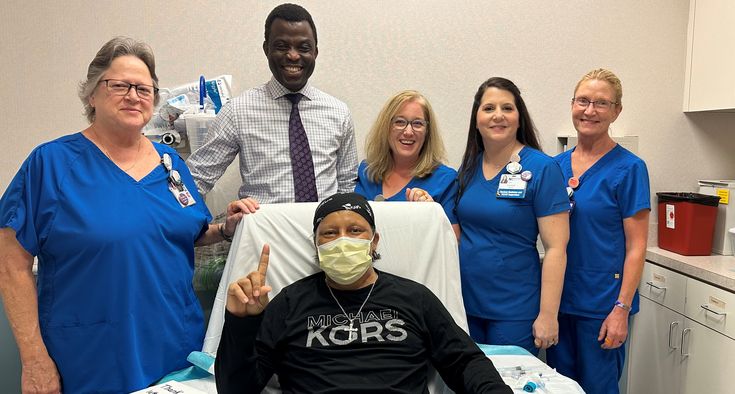Prostate cancer remains one of the most common cancers in men, with an estimated 1 in 8 men receiving the diagnosis in his lifetime, yet many delay or avoid conversations about detecting the disease.
The truth is, catching prostate cancer in its earliest stages is key — and open, informed discussions between men and their doctors can dramatically improve outcomes. With recent trends showing more patients being diagnosed at later stages, awareness and proactive screening have never been more important.

And here's why: Too many men discover their prostate cancer when it’s already at an advanced stage, one expert said, and confusing advice — even embarrassment — could be to blame.
Dr. Christopher Pizzola, an oncologist at the Novant Health Cancer Institute in Wilmington, said the trend carries serious consequences for men. Here Pizzola answers questions about prostate cancer screenings and treatments.
Find expert cancer care near you.
What can men do to identify prostate cancer early?
The cells of the prostate gland make the protein called prostate specific antigen, or PSA. Your primary care doctor can measure PSA with a simple blood test. This is recommended for men starting at age 50, or earlier for those with a family history of prostate cancer or other risk factors. Groups at higher risk for prostate cancer include men with an extensive family history of cancers and African American men.
If the PSA levels start to rise, it could mean you have prostate cancer, benign (noncancerous) prostate conditions or an infection. No specific PSA value can definitively confirm or exclude prostate cancer. Monitoring for changes in the PSA over time can provide important diagnostic information. Additional testing like direct prostate assessments and prostate biopsies are used in conjunction with the PSA to diagnose early prostate cancer.
Why is it so important for men to be diagnosed early with prostate cancer, in particular?
A man diagnosed with early-stage prostate cancer has a higher likelihood of having the disease cured as compared with a patient diagnosed later with more advanced disease. Early-stage prostate cancer can be cured over the course of months with a combination of surgery, radiation treatment and medications. Patients diagnosed with advanced stage disease benefit from a combination of treatments that typically involve years of therapy.
What do you tell patients who are diagnosed with prostate cancer?
When diagnosed with prostate cancer, men usually have several acceptable options for treatment.
Management decisions are made based on characteristics of the patient, stage and the aggressiveness of the prostate cancer. Cancer treatments are tailored to the individual rather than a "one-size-fits-all" approach. Various options include active surveillance without any treatment, surgery, radiation therapy, testosterone suppression and medications in the form of pills or IV infusions.
Deciding on a treatment is often hard for patients. In medicine, it is common for the doctor to make a specific treatment recommendation. It can be overwhelming for men to make the “right” treatment choice for themselves. This is where shared decision-making between a patient and his physician is critical.
What is the biggest misconception about prostate cancer?
The misconception I hear a lot is that prostate cancer is slow-growing, and you will die with it rather than because of it. This statement is true in many cases. However, many men die each year from advanced prostate cancer. More than 35,000 men are expected to die of prostate cancer in the U.S. in 2025, and more than 313,000 cases of prostate cancer are projected to be diagnosed. Despite these numbers, it is important to note that prostate cancer mortality has been decreasing over the past 30 years.
Are patients sometimes uncomfortable talking about prostate cancer or getting tested?
Absolutely! Prostate cancer screening receives less attention in the popular media than other types of cancer, and, as a result, men can be embarrassed to talk about their prostate health. There is also fear that prostate cancer treatment will lead to incontinence and impotence. These are certainly real concerns. Some men require temporary testosterone suppression, while others with earlier forms of prostate cancer will only require testosterone suppression for a limited time.
My recommendation is to talk to your doctor about your concerns and not to avoid what you fear. These discussions provide important information to allow you to make informed decisions about your health.
Click here for more information about cancer services and screening at Novant Health.











